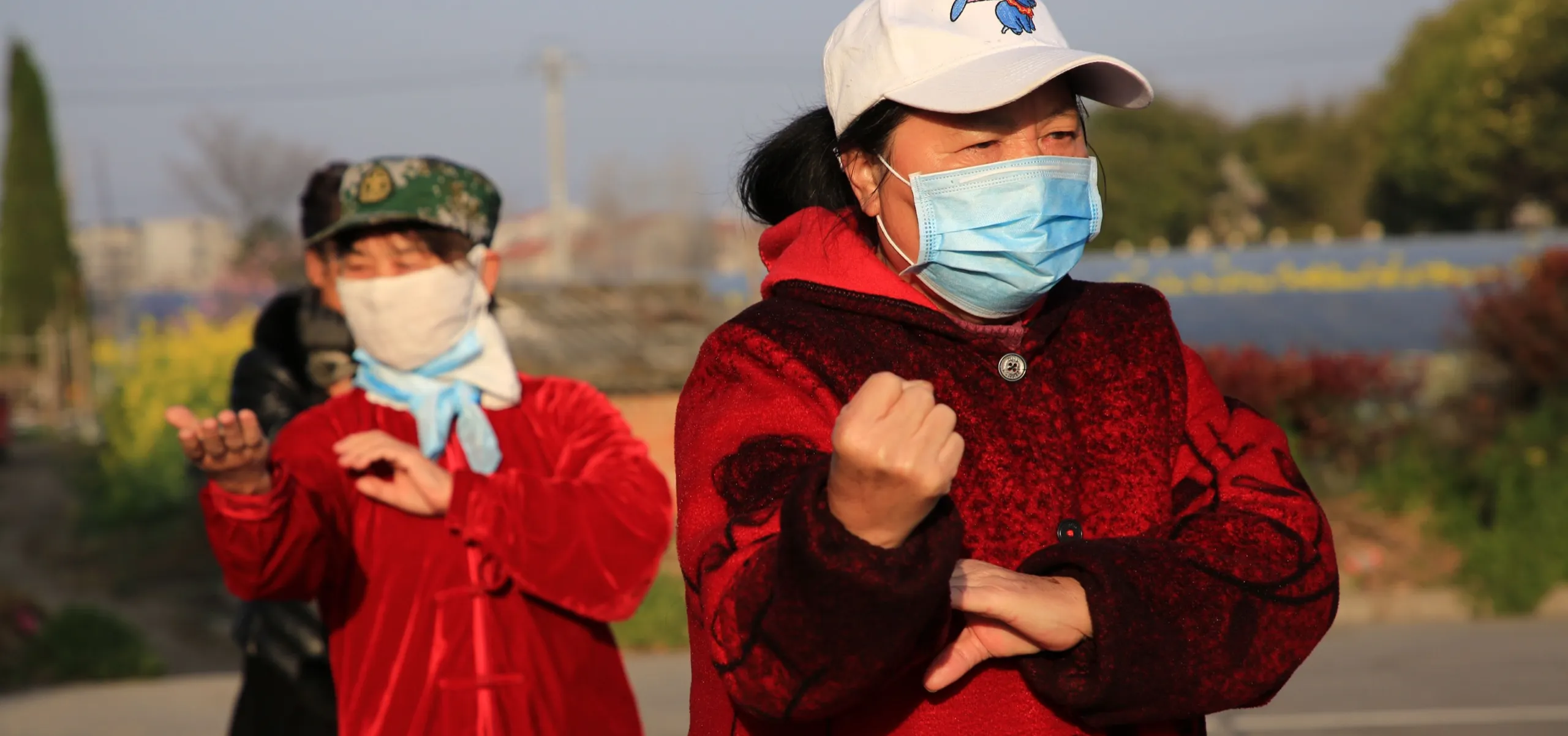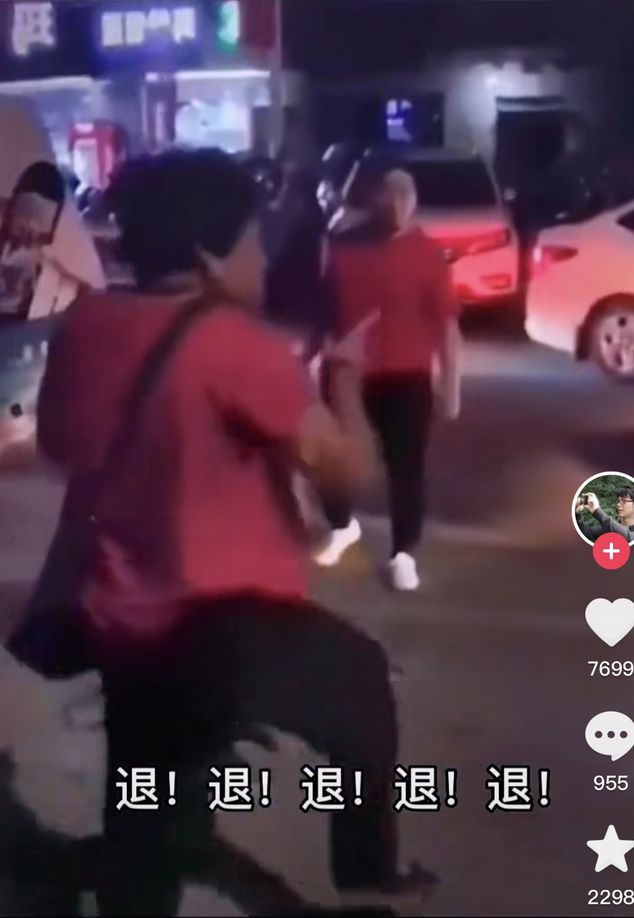How netizens are repurposing a “spell” from middle-aged aunties to ward off daily evils
China’s netizens have appeared to be in retreat recently, with Weibo and other social media platforms awash with a spell-like refrain: “Back! Back! Back!” Sometimes it’s even accompanied by an emoji of a fencer.
The popular mantra derives from a viral video clip of a female street seller arguing with a vehicle owner in Lishui city, Zhejiang province, which went viral on Douyin (China’s TikTok) around May this year. The middle-aged woman had apparently set up her stall in a parking space, upsetting a male driver who angrily tells her it’s illegal to operate there and questions whether she has a business license.
Instead of engaging in debate with the man, the woman simply adopted a fencing position, stomped her feet, gestured at the man with her finger, and shouted: “Back! Back! Back! (退!退!退! Tuì! Tuì! Tuì!)” as if warding off an evil spirit. Apparently deterred by the woman’s aggressive bluff, the driver slunk away.
Netizens expressed awe at the apparent success of the woman’s actions, calling it “fantastical (太魔性 tài móxìng)” and exclaiming “This is magic (这是一种魔法 Zhè shì yì zhǒng mófǎ)!” Another commented that: “One of them was popularizing the law, while the other was performing sorcery (他们一个在普法,一个在施法 Tāmen yí gè zài pǔfǎ, yí gè zài shīfǎ),” playing on the character 法 (fǎ), which can refer to both the law and magic.
The middle-aged woman was hailed as a typical example of a formidable “Chinese auntie (中国大妈 Zhōngguó dàmā),” a common stereotype of middle-aged or elderly women who are seen as cheerful, wise, yet fierce. They typically enjoy square dancing (跳广场舞 tiào guǎngchǎngwǔ) and are not afraid of disturbing the neighborhood or traffic (last month a video from Wuxi, Jiangsu province, showed a group of aunties dragging away a Covid testing station that had been erected where they wanted to dance). They are adept at arguing and even fighting—Annoy them at your peril.
Aunties are also considered specialists in thrift and budgeting. Always on the hunt for a bargain, this group were even identified as influencing the price of gold in 2013. In April that year, plunging gold prices enticed Chinese aunties to rush into shops and snap up large amounts of the precious metal. The Wall Street Journal later reported that this buying rush helped stabilize gold prices by the end of the month.
Their colorful clothes, vitality, and constant presence in public spaces, attract and even intimidate younger netizens. “No one can defeat the Chinese auntie (谁也别想赢得过中国大妈 Shéi yě bié xiǎng yíngdeguò Zhōngguó dàmā),” goes a common refrain online.
Social media users pointed out that the auntie in Lishui was able to defeat the angry driver not with logic or reason, but anger and intimidation. She used bluff to beat the driver’s coarse manner, or “defeat magic with magic (用魔法打败魔法 yòng mófǎ dǎbài mófǎ).”
The auntie’s incantation (“Back, back, back!”) has been taken up to ward off all kinds of other undesirable happenings. For example, those enduring tough times during the pandemic may write:
Virus, go back! Back! Back!
Bìngdú gěi wǒ tuì! Tuì! Tuì!
病毒给我退!退!退!
Quarantine, unemployment, anxiety, go back! Back! Back!
Jūjiā cáiyuán jiāolǜ tuì! Tuì! Tuì!
居家裁员焦虑退!退!退!
Or sometimes:
Internet trolls go back! Back! Back!
Gàngjīng gěi wǒ tuì! Tuì! Tuì!
杠精给我退!退!退!
When people encounter trouble, bad luck, or even awful weather, this spell is also a way to express their frustration, even if it won’t change anything. As one netizen wrote: “If you fight, you will definitely lose. So it’s better just to simply shout ‘back, back, back!’ (吵架是肯定要输的,那喊一句‘退退退’也好。Chǎojià shì kěndìng yào shū de, nà hǎn yí jù 'tuì tuì tuì' yěhǎo.)”














